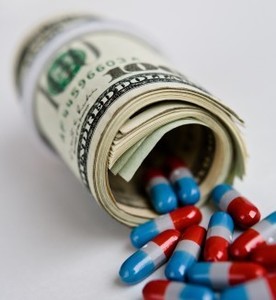The Irish Pharmaceutical Healthcare Association (IPHA) has hit back at statements from the European Commission’s (EC’s) troika that drug prices in the country are unjustifiably high.
Ireland’s IPHA hits back at high drug prices claim
Home/Pharma News
|
Posted 13/12/2013
 0
Post your comment
0
Post your comment
The EC’s troika mission to Ireland recently told the Irish Government that the cost of drugs in the country could not be justified. Drug prices in the country have been found to be at least three times more expensive than in the UK [1].
IPHA, which represents the research-based pharmaceutical industry in Ireland, claims that pharmaceutical companies that make and supply brand-name drugs in Ireland have delivered savings of almost Euros 70 million in the first half of 2013.
IPHA Commercial Affairs Director, Ms Orlaith Brennan put the blame on generics, stating that ‘generic medicines are up to 50% more expensive in Ireland than the European average’. Ms Brennan defended brand-name drugs saying that they ‘are now at or below the European average as a direct result of a series of major price reductions agreed between the industry and the Government’. She added that ‘proper recognition needs to be given to these savings’ and argued that ‘the new system of reference pricing and generics substitution should bring down the price of generics’.
Ms Brennan pointed out that the current agreement has delivered over Euros 68.5 million in savings to Ireland in the first six months of 2013 and has in place mechanisms to deliver Euros 400 million over the course of the agreement. She added that ‘as a result of a series of price reductions agreed by IPHA companies between 2008 and 2013, the pharmaceutical per item cost to the State has reduced by nearly 30%, resulting in savings in the region of Euros 554 million.’
Ms Brennan concluded that Ireland has benefited from ‘very significant savings’ as a result of the part brand-name companies have played in implementing reform in Ireland.
Related articles
Generics policies in Europe have room for improvement
Generics substitution: Ireland’s plan for reference pricing
Reference
1. GaBI Online - Generics and Biosimilars Initiative. Ireland told high drug prices cannot be justified [www.gabionline.net]. Mol, Belgium: Pro Pharma Communications International; [cited 2013 Dec 13]. Available from: www.gabionline.net/Pharma-News/Ireland-high-drug-prices-cannot-be-justified
Permission granted to reproduce for personal and non-commercial use only. All other reproduction, copy or reprinting of all or part of any ‘Content’ found on this website is strictly prohibited without the prior consent of the publisher. Contact the publisher to obtain permission before redistributing.
Copyright – Unless otherwise stated all contents of this website are © 2013 Pro Pharma Communications International. All Rights Reserved.
Source: IPHA
Guidelines
US guidance to remove biosimilar comparative efficacy studies
New guidance for biologicals in Pakistan and Hong Kong’s independent drug regulatory authority
Policies & Legislation
China updates regulations to encourage research and innovation and improved drug safety
Brazil and Mexico forge alliance to streamline medical approvals and boost production
Formycon signs new aflibercept biosimilar pacts and launches ranivisio in Europe

Home/Pharma News Posted 13/11/2025
The best selling biotechnology drugs of 2008: the next biosimilars targets









Post your comment